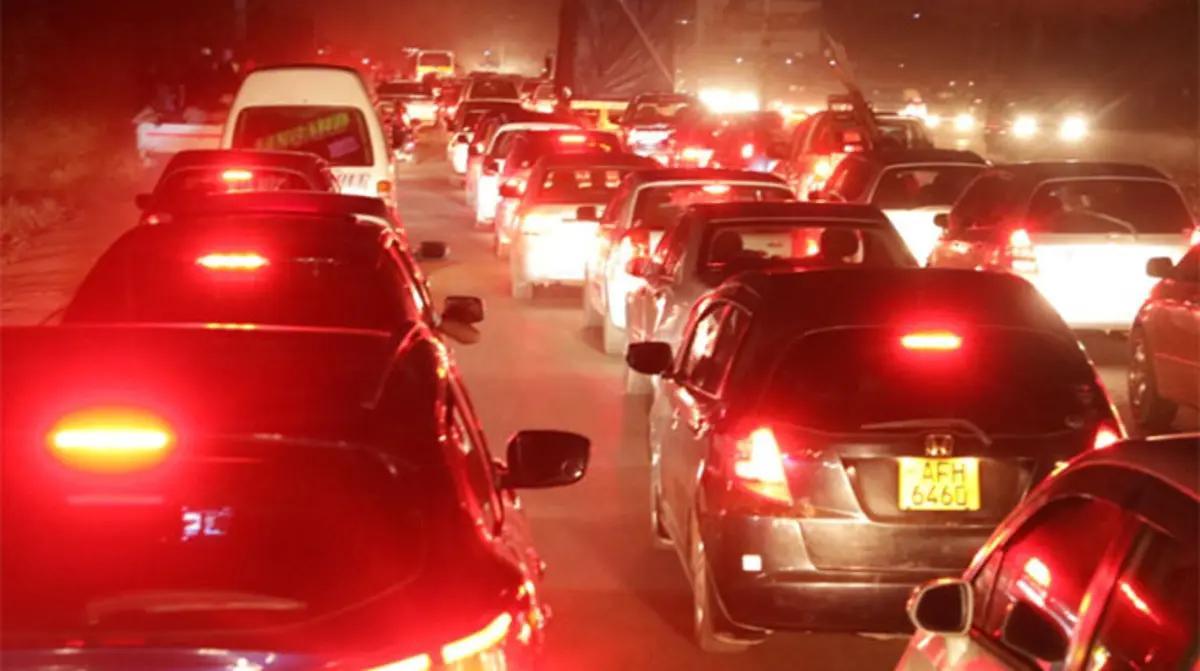Africa-Press – Zimbabwe. THEY do not only drive their vehicles to the next destination.
They have been driving the economy, though their contribution has not been totally documented.
Some have been nabbed along the way for evading paying taxes.
Some have been convicted of smuggling dangerous drugs, contraband and other substances in smuggling rackets.
That’s the nature of their job.
And right now, drivers are cashing in on people who are opting to send parcels instead of going with them in person.
During the COVID-19 pandemic, the government banned unnecessary travelling.
This was done as a way of containing the virus at a time people when the world over was struggling with the pandemic.
For those that contracted the virus, because they had little or no access to ventilators, many had to resort to natural remedies such as Zumbani.
And because of the severity of COVID-19, many turned to sending goods to their beloved ones.
In came drivers, the go to persons, popular by the name Shofe.
Speaking to NewsDay Weekender, Bidzo, a driver with a bus company that plies the Harare-Nyamapanda Highway, gave insights into how they operate.
“Well, this practice (of sending parcels) has been there for a long time,” he said.
“It’s only that nowadays people are no longer frequently travelling because of different reasons.
“Some are now using their personal vehicles and cannot carry parcels for the whole village.
“Some are finding it difficult to make ends meet, thereby opting to travel on holidays or if something crops up which might need their attention.
“Other than that, they opt to send parcels through us.”
Sekuru Mahwite, a retired driver, concurred with Bidzo, saying people are no longer travelling by public transport as they used to.
“During our days, people used to travel to their rural homes. We used to run the so-called daily bus that departed Harare early in the morning and gets back on the same day,” he said.
“It would carry passengers from the capital city to their rural homes and ferry those from the rural areas to town. It helped those who were not given proper off days at their workplace.
“We also used to have late coaches, especially on Fridays, where we had those that knocked off late.
“That one had people who loved their bottle. They would buy us goodies along the way. Remember, the industries were at full throttle, so Fridays were paydays.”
Sekuru Mahwite added that those that failed to visit their rural homes would give the bus crews parcels and paid handsomely so that the parcels would arrive home safely.
But there were stories of some drivers ending up being romantically involved with some of these men’s wives.
“Back then, we got paid in cash or kind. It could be road runners, goats , crops among others,” Sekuru Mahwite said.
Not to be outdone are cross-border drivers, who have been accused of finding favours from members of the fairer sex so that their wares are transported free of charge.
One driver plying the Harare-Johannesburg route said they will be supplementing their income.
“We declare most of the parcels we get from clients. They go to our offices and get their luggage weighed,” he said, preferring anonymity.
“They get tickets and references numbers in case of damage or loss to their property.”
He added: “But we also devised ways of supplementing our income.
“There are people who do not worry much about tickets. All they do is take our numbers, pay the fare and send our details to the receivers.
“We also have the driver’s boot, where such luggage is kept. We make sure we don’t lose these parcels.”
Responding to questions sent to one of the leading bus companies in Zimbabwe, a senior executive said the issue of parcels is of concern to them.
“This is an issue we have been working on for a long time. We are trying to plug all the loopholes.
“But we encourage the people to follow our set rules. It’s good to obtain a ticket when you send your parcel,” he said.
“In most cases, we are called or involved when these people lose their parcels.
“There are some people who mill around our busses and pretend to be our staff. Some people take advantage when alighting, they take with them some parcels that do not belong to them.
“We urge our customers to always do the right thing.”
Another operator said they wanted that money in their coffers as most people are no longer travelling, especially after COVID 19.
“We have put in place ticket books for all the luggage our busses carry.
“We also have assigned staff that deal with luggage and parcels.
“The driver’s duty is to drive not to interfere with loaders.”
Posing as prospective parcel senders, NewsDay Weekender learnt that parcels are charged depending on how big they are, their destinations or the value.
Prices range from US$5 for small parcels to US$20 for bigger ones.
If one is sending money or certificates, they are likely to be charged more.
With the folding of some courier service companies and poor service by the existing ones, drivers will continue to dominate and have a bigger piece of the cake.
However, for those travelling using buses, they are reminded that their tickets are inscribed “Chengetai nhumbi dzikarasika hatiripe”, to mean “Look after your luggage, we won’t reimburse for lost goods”.
For More News And Analysis About Zimbabwe Follow Africa-Press






